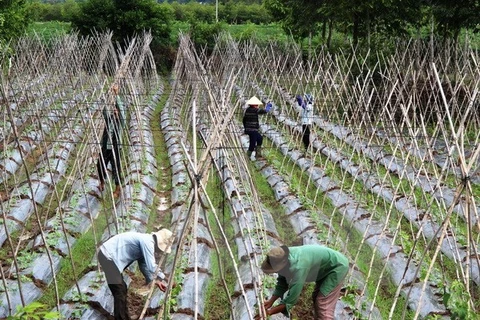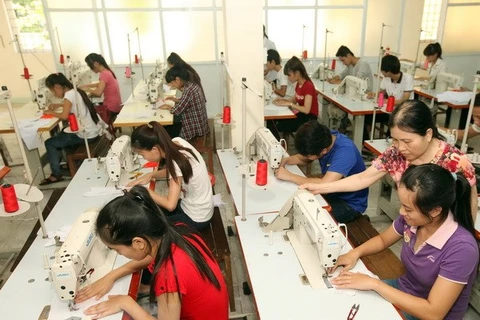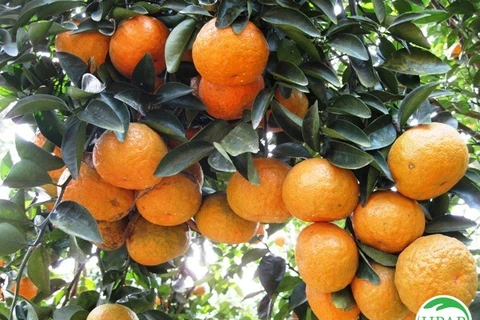Hanoi (VNA) – Developing product chains is an important solution to sustainable export growth, heard a conference in Hanoi on August 8.
Tran Thanh Hai, Deputy Director of the Import-Export Department under the Ministry of Industry and Trade, said that product chains will help cut out intermediary, reduce goods’ prices, raise the added value, and improve competitiveness.
Hai noted that Vietnam’s exports have seen strong growth in both scale and production ability. Total export value recorded a year-on-year rise of 21.2 percent to 214 billion USD last year.
Notably, the export situation this year is forecast to have many opportunities for higher growth as commitments for international integration have been implemented, helping reduce import-export tariffs.
The efforts of the Government and ministries in administrative reform to provide a favourable business environment have aided export activities, he said.
In the first seven months of this year, total import-export turnover reached 264.3 billion USD, up 12.7 percent year-on-year, of which exports were valued at 133.6 billion USD, up 15.3 percent against the same period last year, equal to 56.5 percent of the year’s target.
“This has been a bright point in the economy with high export turnover. However, there are shortcomings that pose challenges for the country’s exports,” he added.
He noted that protectionism became more common in the first months of the year.
In addition, the country’s exports have depended on foreign directed investment (FDI) enterprises, which accounted for 70 percent of total turnover. This was because Vietnam has not had an export value chain, he said.
As an example, a representative from the Vietnam Textile and Apparel Association said the country’s garment export value rose from 15.8 billion USD in 2011 to 31 billion USD in 2017, accounting for 4 percent of the world’s total turnover.
However, the sector has mainly performed cutting and sewing in the global garment and textile supply chain. Vietnamese garment and textile firms have participated in simple outsourcing and lack the ability to provide packaging, resulting in low added value. The garment and textile industry has also relied on imported materials. The local companies have to import up to 86 percent of cloth for production and exports.
A similar situation has been seen in the agricultural sector.
Vietnam has high agricultural output. However, most of its products have not been exported widely due to limited processing capacity. Agricultural and seafood products have been mainly exported as raw materials.
Statistics from the Ministry of Agriculture and Rural Development showed that the country has 700 agricultural chains certified as safe chains. However, only half of the total operates effectively.
Doan Anh Tuan, Chairman of The He Moi Tea Company Ltd, said most Vietnamese firms are small-scale and can not afford to invest in material areas and modern processing and packaging equipment.
"Moreover, local firms have not built their own brand names. The Government should have programmes to invest into technologies to create competitive products and take a firm foothold in the international market," said Tuan.
Participants proposed the country build agricultural chains through consumption contracts between farmers, co-operatives and businesses to have stable material areas. In addition, it should develop breeds with high output and use science and technologies in farming, harvesting, preserving, processing and consumption.
Experts said the support industry could be the foundation for sustainable exports, so the Government should prioritise support industry development for sectors of mechanics, spare pare production, garment and textile and leather shoes.
The solutions could be effective if the business community participated, they said.
Previously, Prime Minister Nguyen Xuan Phuc approved a plan to improve the competitiveness of exported products in Vietnam to create a legal framework for sustainable exports.
The plan aims to increase value of key export staples by 20 percent by 2020.
It hopes to gradually increase exports of agricultural and seafood products to the EU, Japan and the Republic of Korea markets in 2016-20 with average growth rate of 8 percent a year.-VNA
VNA
























